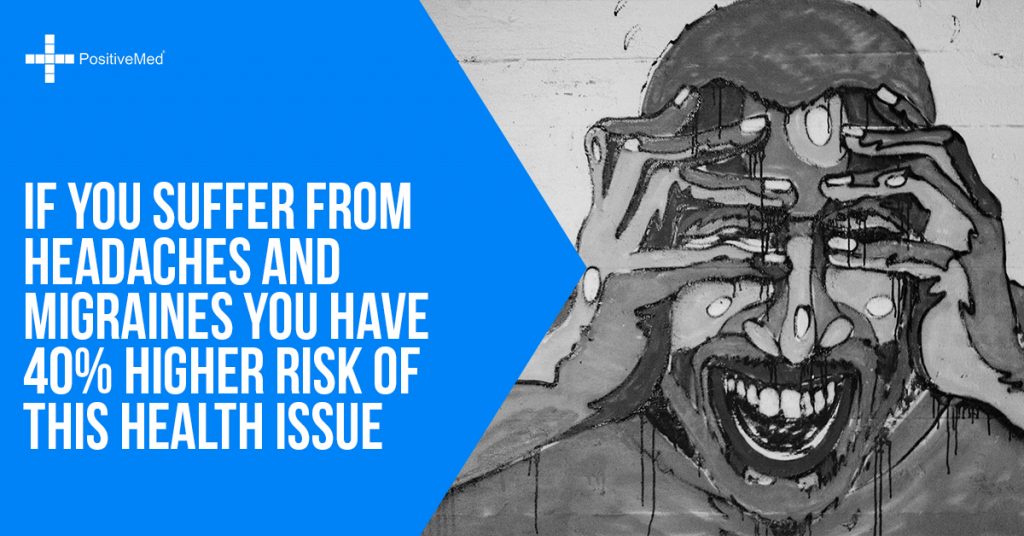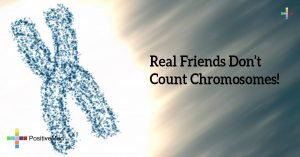[nextpage title=”…”]
A new study published in Headache: The Journal of Head and Face Pain has discovered that people who suffer from headaches, including migraines and cluster headaches, are more at risk for hypothyroidism, a disorder where the thyroid gland doesn’t make as much thyroid hormone as it should.
The thyroid is a gland that is found in the throat. It has two lobes that partially wrap around the windpipe. It takes iodine from the blood and combines it with other chemicals to form thyroxine. Thyroxine is stored in the thyroid, but when it’s needed it’s released into the blood stream then carried all over the body to the cells, where it’s changed into other hormones that regulate the changing of oxygen and nutrients into energy. When there is not enough thyroid hormone, everything in the body loses vigor. Skin and hair grow coarse, and people gain weight without meaning to. Other symptoms of an underactive thyroid are:

• Lowered tolerance for cold
• Decreased appetite
• Constipation
• Chest pain
• Constant sleepiness or insomnia
• Depression
• Poor memory
• Numbness and tingling in the extremities
• A heartbeat that’s too fast, too slow or irregular
[/nextpage][nextpage title=”…”]
RELATED ARTICLE: Protect Your Thyroid by Avoiding These 2 Iodine Rich Foods
People who already suffered from tension or cluster headaches were at a 21 percent higher risk of developing hypothyroidism than the rest of the population. The risk of contracting hypothyroidism was even greater for people with migraines. Their risk was 41 percent.
Researchers are not sure why people who had headache disorders are more prone to hypothyroidism. However, when hypothyroidism is treated, the headache condition improves.
Diagnosing Hypothyroidism
Hypothyroidism can be determined by a blood test that measures the level of a hormone called the thyroid-stimulating hormone, or TSH. This hormone doesn’t come from the thyroid itself but from the pituitary gland. It tells the thyroid to start making the hormone. A blood test can also detect the levels of thyroxine. If the TSH levels are high and the thyroxine levels are low, this means that the person is probably suffering from hypothyroidism. The TSH test also lets the doctor know how much synthetic thyroid hormone to prescribe.
When a physician has diagnosed a person with hypothyroidism, the usual treatment is to give them a synthetic thyroid hormone. The most commonly given hormone is called levothyroxine. Many people who need this drug have to take it for the rest of their lives, but they do notice that their symptoms improve after about a week or two. This includes their headache symptoms.
[/nextpage][nextpage title=”…”]
READ ALSO: See How You Can Treat Hypothyroidism and Hashimoto’s Disease Naturally
Headaches
The three types of headaches that make people more susceptible to hypothyroidism are migraines, cluster headaches, and tension headaches.
Migraines
There are several types of migraine headaches, but a classical migraine headache affects only one side of the head. It’s a throbbing headache whose pain can be incapacitating. Some people have auras just before the headaches begin. They may see zig-zag patterns of light or bright spots. Nausea and vomiting may also accompany these headaches.
Cluster Headaches
These are excruciating headaches that come in groups. For many people, cluster headaches are seasonal and may show up at a certain time every day for weeks or even months. They also attack one side of the head and seem to be concentrated around the eye, which often turns reds and tears. When these headaches stop, it may be years before another cluster of headaches returns.
Tension Headache
The pain of these “ordinary” headaches can come from a muscle strain on the scalp, face, and neck, from narrowed blood vessels in the head that put pressure on the walls of the blood vessels or from dilated blood vessels in the brain.
The research into how hypothyroidism and headaches are linked is ongoing. In the meantime, it is good to know that treating hypothyroidism can bring relief from sometimes crippling headaches as well.
[/nextpage]






